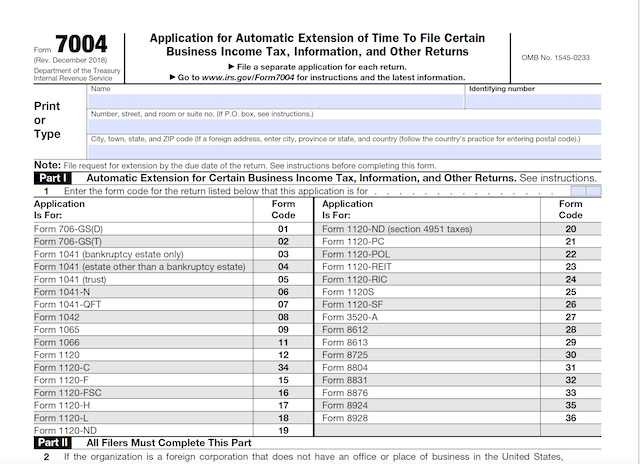Mark these deadlines
This article was originally published on Jan. 3, 2019, and was updated on Jan. 8, 2020 and Jan. 4, 2021.
This content should not be construed as legal or tax advice. Always consult an attorney or tax professional regarding your specific legal or tax situation.
As a small business owner, it can feel like tax deadlines constantly sneak up. Quarterly estimated taxes? Sending 1099s to contractors? Income tax day? It can be all too easy for busy business owners to overlook the tax calendar, missing a due date and facing a penalty.
And then there’s COVID-19. The pandemic threw the 2020 tax calendar into a frenzy, with the usual April 15th due date moving forward two months to July 15, 2020. The good news is that, as of right now, all tax deadlines for 2021 remain unchanged.
Note: This post assumes that you are a sole-proprietor or small LLC with no employees. If you do have employees, just note you’ll also need to deal with payroll tax and sending out W-2s to your employees. Also, tax obligations can vary from business to business. Always be sure to check with a reputable tax pro if you are unsure what taxes apply to your industry and business.

January 2021
Jan. 15, 2021: Your quarterly estimated tax payment for Q4 2020 is due on this date. Not sure what to do? Read our guide to quarterly estimated taxes.
Jan. 31, 2020: Today your form 1099-MISC is due to the IRS and to your contractors. Find out how to prepare a 1099-MISC form to send to contractors.
February 2021
Feb. 1, 2021: Today your form 1099-NEC (Non-Employee Compensation) is due to your contractors and the IRS. Find out how to prepare a 1099-NEC form to send to contractors. (In 2021, the usual due date, January 31st, falls on a Sunday so you have one extra day to file.)
March 2021
March 16, 2021: If your business is set up as an S-corporation or a partnership, your corporate income tax return is due today. Yes, that’s a full month before the deadline for personal income tax returns and returns for businesses that are set up as sole-proprietorships or LLCs! (In 2020, the usual due date, March 15th, falls on a Sunday so you have one extra day to file.)
If your business is a partnership the IRS requires you to file form 1065.
If your business is an S-corp, the IRS requires that you file form 1120-S.
Fittingly, this is also the final day for businesses set up as partnerships or S-corps to request a six-month tax extension. Find out more about requesting a tax filing extension here.
Pro tip: Keep in mind that an extension allows you extra time to file, but does not extend the time you have to actually pay your income tax.

Image: IRS Form 7004
April 2021
April 15, 2021: Aka “Income Tax Day.” If your business is a sole-proprietorship or LLC, your income taxes are due today. File your Form 1040, 1040-A or 1040-EZ today, and pay any additional taxes you might owe that you didn’t pay in quarterly estimated taxes.
If your business is set up as a C-corporation your income tax is also due today. The IRS requires that you file Form 1120.
Q1 2021 quarterly estimated taxes are also due on April 15.
And last but not least, today is also the final day to request a six-month tax extension on your time to file your income tax return.
June 2021
June 15, 2021: Today is the deadline to pay Q2 2021 quarterly estimated taxes.
September 2021
Sept. 15, 2021: Today is the deadline to pay Q3 2021 quarterly estimated taxes.
This is also the income tax filing deadline for partnerships and S-corps that requested a six-month income tax filing extension.
October 2021
Oct. 15, 2021: This is the last day for everyone who files business sales tax as an individual (sole proprietorships, LLCs, etc.) and C-corps that requested a six-month tax filing extension to file income tax.
January 2022
Jan. 15, 2022: Today is the deadline to pay Q4 2021 quarterly estimated taxes.
What about the state and local tax calendar?
Most businesses are required to pay income tax not just to the federal government, but to the state, too. Depending on your location, some businesses are even required to remit taxes to local areas such as cities and counties. How and when to pay taxes generally falls along the same tax calendar as federal taxes, but can vary by state. That’s why we recommend contacting your state’s taxing authority for more info. You can generally find this by searching “your state” + “Department of Revenue.”
VIA: GoDaddy Blog
Author: Jennifer Dunn
Jennifer Dunn is an Atlanta-based writer who specializes in making complicated tax topics simple for business owners. Connect with her at Writer Jennifer Dunn or on Twitter.





